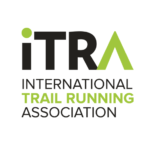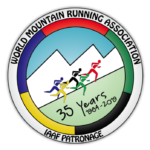
Tayte Pollmann’s articles are supported by American Trail Running Association corporate member Nike Trail Running. You can follow Tayte’s adventures on Facebook, Twitter and Instagram. If you liked this article, read even more of Tayte’s articles on our website.
The current coronavirus pandemic is not only affecting public health around the world, but also affecting the natural environment. The pandemic has led to reductions in air pollution due to fewer cars on the road, but it may also have distracted many of us from thinking about and addressing other pressing environmental issues. For this Earth Day 2020, I share my top seven tips for reducing your environmental impact while staying safe during the coronavirus pandemic.

Use Dish Towels and Cloth Napkins
Is your local grocery store all out of paper towels or paper napkins? Luckily, there’s no need to use paper products when you can use more sustainable dish towels and cloth napkins. Instead of being thrown away after each use, dish towels and cloth napkins can be washed (and hung out to dry saving energy in the drying cycle), and reused many times. If you haven’t already switched over to using these eco-friendly options, now is a great time because they’re better for the environment and paper products are probably out-of-stock in your local grocery store!
Use Your Oven Responsibly
Many of us may have taken up the enjoyable hobby of baking and are using the oven more than ever before. Heating up the oven requires energy and using it too much throughout the day could significantly increase your energy consumption. Next time you plan to use the oven, think about ways you can reduce your energy usage. For example, if you plan to bake cookies in the morning and a quiche for dinner, consider cooking both around the same time. This way you only have to heat up the oven once. If you turn up your thermostat to heat your house, you can likely turn it down a few degrees before baking as the oven will generate heat throughout the house.

Drive Less
To limit your exposure to the coronavirus, it’s a good idea to spend most of your time at, or close to home. Some states have issued stay-at-home orders to emphasize this point. Not only will staying at home help keep you safe from the virus, but it’s also a great way to drive less and reduce your CO2 emissions. Travel by car only when it’s essential. This will help you stay safe and reduce your carbon footprint.
Compost Food Waste
Since we are eating more of our meals at home, we may also be producing more waste in our kitchens. Much of this waste, such as fruit skins, egg peels, tea bags, and vegetable scraps can be used for compost. Some towns offer services to collect compost, or you can keep it for your own home garden. Compost fertilizes soil and can set you up to have a thriving garden this summer. Here’s some ideas for how to start composting.
Ask About Food Takeout Packaging
Since many of us are likely unable to dine at our favorite restaurants, we may be placing more takeout orders. This can be a great way to support our favorite places, but it can also be a major source of waste. Many companies use non-degradable plastic utensils, straws, and far too many paper napkins. Before placing your takeout order, ask what will be placed in the takeout bag and request only what you really need.

Use Green Cleaning Products
Due to the contagiousness of the virus, many of us are likely cleaning our homes more than usual. Although keeping our houses clean will help keep us safer and healthy, many of the most common cleaning products on the market are harmful to the environment. Look for products with reliable third-party certifications to ensure you’re getting products that are non-toxic and safe for the environment. Reputable third-party certifications include those by Green Seal, Green Guard, and EPA Safer Choice.
[Editor’s note: Not all cleaners are effective disinfectants for use against the coronavirus. Check the EPA website for a database of Disinfectants for Use Against SARS-CoV-2]
Drink Tap Water
Many people are stocking up on bottled water, but there’s no reason for this. There’s no water shortage and the plastic from bottled water is extremely harmful for the environment. Using tap water will save you money and reduce plastic waste. If you don’t trust the quality of your tap water, consider investing in a water filter.

Extra Credit: If you’re thinking about buying a new house or renovating your existing home, consider including energy efficient construction techniques, solar panels, LED lighting, advanced HVAC systems and low energy use appliances. Learn more about how your can lower your energy consumption and save money at the Zero Energy Project.
Consistent with our 2020 theme: Climate Action, look for more articles like this one in the weeks and months to come.










